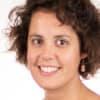Rural village in Eritrea. The European Union's partnership program with the country will focus on providing sustainable and effective energy access. Photo by: USAID /CC BY-NC-ND
The EU has been supporting the State of Eritrea since independence in 1993. Under the previous cycle of funding from 2009-2013, the EU dedicated EUR 53.7 million to food security and rural development programs.
The new agreement signed last January, officially called National Indicative Program (NIP) 2016 -2020 for Eritrea will focus on the following focal sectors:
This story is forDevex Promembers
Unlock this story now with a 15-day free trial of Devex Pro.
With a Devex Pro subscription you'll get access to deeper analysis and exclusive insights from our reporters and analysts.
Start my free trialRequest a group subscriptionAlready a user? Sign in
Printing articles to share with others is a breach of our terms and conditions and copyright policy. Please use the sharing options on the left side of the article. Devex Pro members may share up to 10 articles per month using the Pro share tool ( ).


